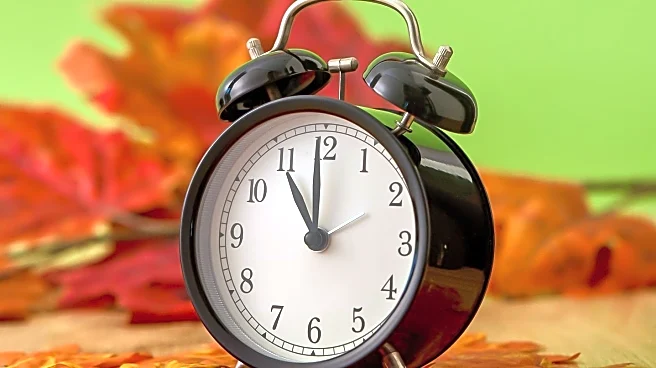What's Happening?
As daylight saving time ends this weekend, most of the U.S. will 'fall back' and gain an hour of sleep. Shelby Harris, a sleep expert and clinical associate professor at Einstein Medical School in New York City, discussed the health impacts of this time change
on 'CBS Mornings Plus.' The shift in time can affect sleep patterns, mood, and overall health, as the body adjusts to the new schedule. Harris emphasized the importance of understanding these changes and adapting routines to minimize negative effects.
Why It's Important?
The end of daylight saving time can have significant health implications for individuals across the U.S. The time change can disrupt circadian rhythms, leading to sleep disturbances and affecting mental health. Understanding these impacts is crucial for maintaining well-being, as sleep is a fundamental component of health. The discussion by Shelby Harris highlights the need for public awareness and strategies to cope with the transition, such as adjusting sleep schedules and ensuring adequate rest.
What's Next?
As the U.S. transitions out of daylight saving time, individuals may need to adjust their daily routines to accommodate the change. This includes modifying sleep schedules, planning activities to align with daylight hours, and being mindful of potential mood changes. Health professionals may continue to provide guidance on managing these adjustments, emphasizing the importance of sleep hygiene and regular sleep patterns. The conversation around daylight saving time may also prompt discussions on its long-term viability and potential policy changes.















